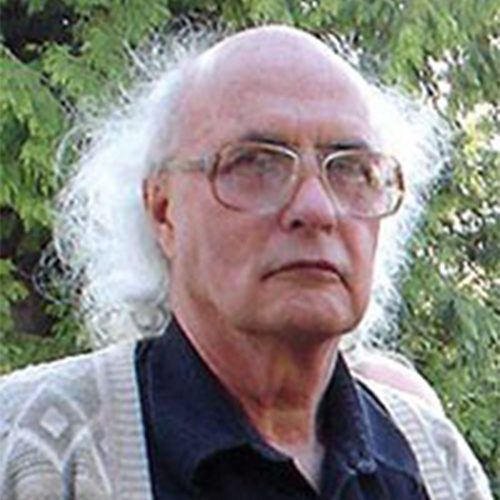
Professor Emeritus
Email: branion@chbe.ubc.ca
Research Summary
Microbial Leaching, Oil Water Separation, Paper Technology, Wastewater Treatment
Education
University of Saskatchewan, 1964, Ph.D., Chemical Engineering
University of Toronto, 1957, M.A.Sc., Chemical Engineering
University of Toronto, 1956, B.A.Sc., Chemical Engineering
Research interests + projects
Dr. Branion’s research interests are focused on wastewater treatment of pulp and paper mill effluents, the fluid mechanical behaviour of hydrocyclones operating on pulp suspensions and the microbiological leaching of metals from sulfide minerals.
Use of the activated sludge process for the treatment of pulp mill waste waters results in the generation of microbial cell mass, some of which is recycled to the treatment process and some of which must be disposed of. This sludge is hard to dewater and therefore disposal is expensive. Research is in progress on the use of aerobic and anaerobic sludge destruction to reduce the amount of sludge solids going to disposal. Dewaterability of the sludges before and after these treatments is being measured, as is the effect of polymer additions on dewaterability. A variety of thermal, and chemical pretreatment processes are being investigated to see how they affect subsequent aerobic and anaerobic sludge destruction processes.
Hydrocyclones are used in pulp manufacture and in papermaking to remove a variety of undesirable contaminants from pulp suspensions. Hydrocyclones could be used to fractionate pulps, that is to separate various fractions of pulp from each other. These fractions could then be recombined to create papers of different properties. To better understand this we are trying to develop a fluid mechanically based, mathematical description of how a hydrocyclone works to separate particles in the presence of pulp. We are also measuring the fibre length distributions and specific surfaces of the feed, accepts and reject streams to and from a hydrocyclone to see how flow rate, pulp consistency, hydrocyclone geometry and temperature affect these parameters.
Microbiological leaching of metals from sulfide minerals is possible because certain bacteria (e.g. Thiobacilli) oxidize the sulfide component of the mineral allowing the metal ions to go into solution from which they can be recovered. Research in this area is directed at determining the necessary kinetic and heat and mass transfer characteristics to facilitate scale up of lab scale reactor based data to full size industrial reactors. I am also interested in following mineralogical changes during microbial leaching of chalcopyrite which has been chemically pretreated. The pretreatment improves the recovery of copper. The mechanism by which the pretreatment works and how it affects the microbial activity is not understood.
Scholarly and professional activities + affiliations
Society of Professional Engineers and Geoscientists of BC
Pulp and Paper Technical Association of Canada
Technical Association of the Pulp and Paper Industry (TAPPI USA)
Canadian Society for Chemical Engineering
Canadian Association on Water Pollution Control Research Water Environment Federation
Society of Chemical Industry
International Association on Water Quality
Selected publications + presentations
Jensen, Allan, Duff, Sheldon, Posarac, Dusko, Branion, Richard, “Predicting Kraft Mill Volatile Organic Carbon And Total Reduced Sulphur Emissions Using Vapour Liquid Equilibrium Theory”, Proceedings 91st Annual Meeting, PAPTAC, Montreal, 2005.
Lemus, G.R., Lau, A.K., Branion, R.M.R., Lo, K.V., “Bench-scale Study Of The Biodegradation Of Grease Trap Sludge With Yard Trimmings Or Synthetic Food Waste Via Composting”, in press Journal of Environmental Engineering Science, 2004.
Vera Perez, I., Rogak, S., Branion, R., “Supercritical Water Oxidation of Phenol and 2,4-Dinitrophenol”, Journal of Supercritical Fluids, 30(1), 71-87, 2004.
Cheuk, W., Lo, K.V., Branion, R., Fraser, B., “Applying Compost to Suppress Tomato Disease”, BioCycle 44(1), 50-51, 2003.
Cheuk, W., Lo, K.V., Branion, R., Fraser, B. “Benefits of Sustainable Waste Management in the Vegetable Greenhouse Industry”, Journal of Environmental Science and Health Part B, B38, 855-863, 2003.
Asselin, E., Alfantazi, A., Rogak, S., Vera Perez, I., Faraji, D., Branion, R., Case Study Of The Failure Of Supercritical Water Oxidation Reactor Tubing During The Treatment Of 2,4 DNP With Ammonium Sulphate’, page 307 in Environmental Degradation Of Materials And Corrosion Control In Metals” edited by J. Luo, M. Elboujdaini, D. Shoesmith and P.C. Patnaik, Metsoc. 2003.